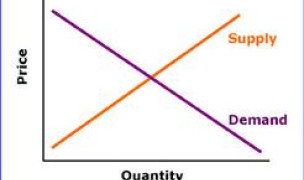 10 Terms
10 TermsHome > Terms > English, UK (UE) > Generalisation
Generalisation
1) The spread of the effects of reinforcement (or other operations such as extinction or punishment) during one stimulus to other stimuli differing from the original along one or more dimensions. To the extent that responding is similar during two different stimuli, the organism is said to generalise between them (the stimuli are said to be generalized) . If responding is identical during different stimuli, generalisation between them is said to be complete (this outcome may also be described as the absence of discrimination or as the organism's failure to attend to the dimension or dimensions along which they differ).
2) The occurrence of a behaviour in the presence of a novel stimulus. Usually the novel stimulus is similar to the SD in a discrimination-training procedure.
3) The spread of effects to other classes of behaviour when one class of behaviour is modified by reinforcement, extinction, and so on. For instance, the way a particular letter is shaped or formed may vary in ways that are similar but not identical to the formation of the letter as it was originally reinforced.
4) The tendency for the effects of training to spread.
- Part of Speech: noun
- Synonym(s):
- Blossary:
- Industry/Domain: Psychology
- Category: Behavior analysis
- Company:
- Product:
- Acronym-Abbreviation:
Other Languages:
Member comments
Terms in the News
Featured Terms
Vermicelli
Italian for little worms. Vermicelli is a very thin spaghetti-shaped pasta.
Contributor
Featured blossaries
Browers Terms By Category
- Cables & wires(2)
- Fiber optic equipment(1)
Telecom equipment(3) Terms
- Film titles(41)
- Film studies(26)
- Filmmaking(17)
- Film types(13)
Cinema(97) Terms
- American culture(1308)
- Popular culture(211)
- General culture(150)
- People(80)
Culture(1749) Terms
- Dictionaries(81869)
- Encyclopedias(14625)
- Slang(5701)
- Idioms(2187)
- General language(831)
- Linguistics(739)
Language(108024) Terms
- Zoological terms(611)
- Animal verbs(25)




